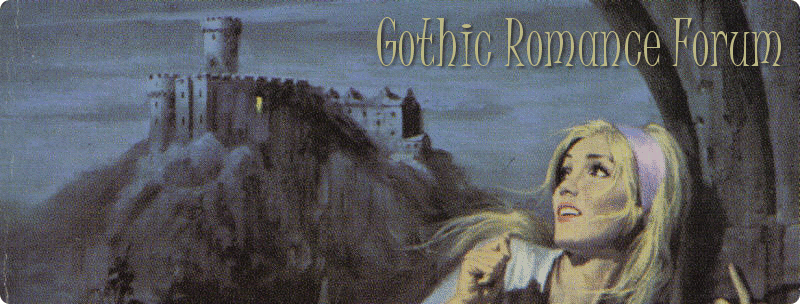01-24-2011, 08:01 PM
Vanessa, the daughter of a renowned musician and singer, both of whom died in scandalous circumstances, is hired to teach music to a "prodigy", Tarquin (have you ever heard of that?) Venner. As you can probably guess, all is not what it should be.
As a child I mixed up a lot of the details, but reading it again, it does not give me the creeps as it did then. Perhaps, I read too much into the possessions and demons and such, which were mentioned in the book. As an adult and an experienced reader of gothics, I realize that those are just tricks the author uses to introduce the supernatural element.
Tarquin is an afterthought child, just when his parents had given up hope of ever having a son. He has an older (much older) sister Mary, who is ignored by the parents as they dote on Tarquin. Vanessa accepts that she is to teach him to play the violin, but she never questions how he learns any other subjects. The parents decided to keep him at home because he was "too intelligent" for the village school. (England must not have had very stringent schooling requirements back then.) Not very much happens until Tarquin becomes jealous of Vanessa. I can't say much more, otherwise, it would give away the plot. Not that there really is much to give away.
As a child I was not reading this story for the romance, so I did not miss it. As an adult, I realize there was no romance. It would have been very difficult to devise one. Vanessa's character, in my opinion, was very prickly. Though she doesn't go around telling everyone she was beautiful, it was very obvious that she knew it. She thought she was too good for anybody. Her opinions of every man around her was rather condescending. I did not find her very likeable.
The ending was neither happy nor tragic. Happy endings to me suggest that the hero and heroine ride off into the sunset after barely escaping evil designs on the heroine. Since there was no hero, there is no sunset ride. Tragedies imply that the heroine was personally affected by the outcome, and except for the fact that she must have been relieved to be alive, she had no emotional attachment to anyone for her to feel tragic.
As a child I mixed up a lot of the details, but reading it again, it does not give me the creeps as it did then. Perhaps, I read too much into the possessions and demons and such, which were mentioned in the book. As an adult and an experienced reader of gothics, I realize that those are just tricks the author uses to introduce the supernatural element.
Tarquin is an afterthought child, just when his parents had given up hope of ever having a son. He has an older (much older) sister Mary, who is ignored by the parents as they dote on Tarquin. Vanessa accepts that she is to teach him to play the violin, but she never questions how he learns any other subjects. The parents decided to keep him at home because he was "too intelligent" for the village school. (England must not have had very stringent schooling requirements back then.) Not very much happens until Tarquin becomes jealous of Vanessa. I can't say much more, otherwise, it would give away the plot. Not that there really is much to give away.
As a child I was not reading this story for the romance, so I did not miss it. As an adult, I realize there was no romance. It would have been very difficult to devise one. Vanessa's character, in my opinion, was very prickly. Though she doesn't go around telling everyone she was beautiful, it was very obvious that she knew it. She thought she was too good for anybody. Her opinions of every man around her was rather condescending. I did not find her very likeable.
The ending was neither happy nor tragic. Happy endings to me suggest that the hero and heroine ride off into the sunset after barely escaping evil designs on the heroine. Since there was no hero, there is no sunset ride. Tragedies imply that the heroine was personally affected by the outcome, and except for the fact that she must have been relieved to be alive, she had no emotional attachment to anyone for her to feel tragic.



